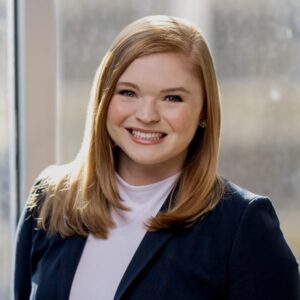Insights < BACK TO ALL INSIGHTS
Singing the Varsity Blues – Convictions Vacated For Two Defendants in the College Admission Scandal.
Singing the Varsity Blues – Convictions Vacated For Two Defendants in the College Admission Scandal.
By: Abbey Block
On May 10, 2023, the First Circuit Court of Appeals provided welcoming news to two of the defendants in “Varsity Blues” the college admissions scandal – their convictions were being vacated. Former Wynn Resorts executive Gamal Abdelaziz and private equity executive John Wilson were just two of dozens of high-profile defendants charged with various white-collar crimes – including bribery and fraud – for making fraudulent “donations” to secure their children’s admission to competitive universities.
By way of background, the college admissions scandal became public in 2019, when it was revealed that wealthy and well-connected families worked with a college admissions counselor named Rick Singer, to obtain their children’s admission to prestigious universities such as Harvard and USC. Specifically, the parents worked with Singer to give money to the schools or their athletic program. In exchange, Singer would ensure that university employees would secure their children’s admission as athletic recruits – despite the fact that most of the students lacked the requisite athletic ability to play at the collegiate level, and accordingly, never did in fact play for the teams. For example, the government alleged that Abdelaziz gave Singer $300,000 to get his daughter into USC as a basketball recruit, even though she had never played varsity basketball on her high school team. Other parents created fabricated student profiles by supplying staged and photoshopped photographs of their children engaged in athletic activity. Singer referred to this arrangement as the “side door” admission process.
The government charged Abdelaziz and Wilson with multiple offenses based on their transactions with Singer. Specifically, the government alleged that Abdelaziz and Wilson conspired with both Singer and other parents involved in the “side door” scheme to commit (1) honest services fraud, by depriving the universities of the honest services of their employees; (2) property fraud, by depriving the universities of property in the form of “admissions slots,” and (3) federal programs bribery. Wilson was also charged with tax-related offenses. In October of 2021, a jury found both Abdelaziz and Wilson guilty on all counts.
On appeal, the First Circuit vacated the defendants’ mail and wire fraud conviction, including the related conspiracy convictions, holding that the “honest service fraud theory fails as a matter of law and that the government’s arguments with respect to the property theory were not adequate to support the jury instructions given at trial.” United States v. Abdelaziz, 68 F.4th 1, 27 (1st Cir. 2023).
With regard to the honest services fraud theory arising under 18 U.S.C. §§ 1341, 1343, and 1346, the government was required to prove that the defendant had devised a scheme or artifice to defraud others of money, property, or intangible rights – including the intangible right of honest services. The government argued that defendant’s conduct constituted honest services fraud under a broad interpretation of bribery as defined by other federal statutes, such as 18 U.S.C. § 666. The Court rejected this argument, relying on the Supreme Court’s decision in Skilling v. United States, 561 U.S. 358 (2010) to conclude that the defendants’ conduct was beyond the scope of the definition of a classic bribe or kickback.
In short, statutory and case law did not support the conclusion that “payments to the purportedly betrayed party constitute ‘bribes’ as that term is traditionally understood or used in Skilling.” Id. at 29. Further, the Court reasoned, under the government’s theory, “[a]n ordinary person would not be put on notice that a payment to a purportedly betrayed party was bribery,” as contemplated by the court in Skilling. Simply put, you can’t be charged with fraud for bribing the alleged “victim” of your scheme.
The Court also rejected the Government’s property fraud theory of liability, under which it was required to prove “that ‘the object of the fraud . . . [was] [money or] property in the victim’s hands.’” Id. at 33 (alterations in original). The government argued that the “property” allegedly obtained were the “admission slots.” Id. The Court rejected this argument, concluding both that (1) admission slots do not always qualify as property; and (2) the district court’s jury instructions erred in stating that admissions slots categorically constituted property of the universities. The government’s “highly general argument,” the Court explained, “would criminalize a wide swath of conduct,” such as “embellishments in a kindergarten application.” Id. at 38.
Finally, the Court addressed the defendant’s argument that the conspiracy charges relied on an impermissible “rimless wheel” conspiracy theory and allowed the prosecution to present inflammatory evidence to the jury of other defendants’ obviously culpable conduct in which Wilson and Abdelaziz played no part. The defendants argued that the evidence was, at most, sufficient to show that they engaged in a conspiracy to get their own children into the university — not that they conspired with the other defendant— parents to get their children admitted. Simply put, there was no agreement amongst the various defendant-parents to engage in the admissions scheme: “[W]hatever agreements might have existed among Singer and other parents, the evidence would not allow a reasonable jury to find that each of Abdelaziz and Wilson agreed to conspire with those parents.” Id. at 41.
The Court agreed with the defendants, concluding that although the various defendant-parents shared similar goals (getting their own child into a prestigious university) they did not share a common goal of getting the other defendant-parents’ children admitted. There was no evidence to support an inference that the defendants had a goal beyond benefiting themselves. Rather, the defendants were “indifferent or even adverse to whether other parents’ children were admitted to the school to which they sought admission and had no interest in what happened to parents seeking admission at other universities.” Id. at 46.
So where does this leave the more than fifty other defendants implicated in the Varsity Blues scandal? Most have already pled guilty, and many have even served time in prison. Perhaps most well-known, actresses Lori Loughlin and Felicity Huffman both pled guilty for their involvement in the scheme and were sentenced to two months and fourteen days in prison respectively.
It seems unlikely that these defendants will attempt to, or be able to, withdraw their guilty pleas. As an initial matter, withdrawing a knowingly and voluntarily entered guilty plea is no easy task. Generally, after sentencing, a guilty plea may be withdrawn only to correct a “manifest injustice.” This has been described as a “heavy burden.” United States v. Mariner, 383 F.2d 444, 445 (3d Cir. 1967).
Further, for those that have already served their period of incarceration, the costs and hassle of litigating the withdrawal of a guilty plea may not be worth the effort. Simply put, for many, it may make sense to try to move on from the scandal rather than open up Pandora’s box of litigation. Given that many of the defendants were both wealthy and well-connected, it seems unlikely that their convictions will act as a significant barrier to their future endeavors. Further, the facts and circumstances of each defendant’s involvement in the scheme differ significantly, so that the First Circuit’s rulings may not ultimately offer broad legal relief to the other defendants.
Importantly though, this decision may influence future charging decisions made by federal prosecutors. Indeed, the First Circuit’s decision sends a clear message – the government should refrain from broadly construing federal fraud statutes. Perhaps the First Circuit’s decision will inspire a new level of restraint, requiring prosecutors to think twice before seeking to criminalize broad categories of private conduct not intended to be covered by federal criminal statutes. Simply because a defendant’s conduct was dishonest or undesirable, does not mean it was criminal.
Related: White Collar Defense Lawyer





